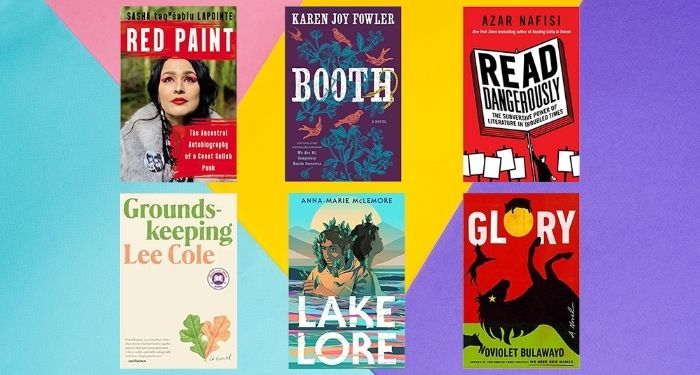
New Releases Tuesday: The Best Books Out This Week
It’s Tuesday, which means it’s time for a new batch of book releases! Here are a few of the books out today you should add to your TBR. This is a very small percentage of the new releases this week, as well as a few others you may have missed from recent weeks. Make sure to stick around until the end for some more Book Riot resources for keeping up with new books. The book descriptions listed are the publisher’s, unless otherwise noted.
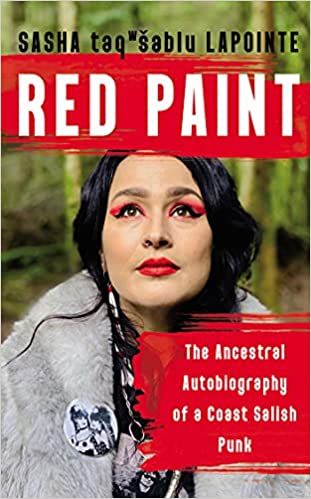
Red Paint: The Ancestral Autobiography of a Coast Salish Punk by Sasha LaPointe
An Indigenous artist blends the aesthetics of punk rock with the traditional spiritual practices of the women in her lineage in this bold, contemporary journey to reclaim her heritage and unleash her power and voice while searching for a permanent home.
Sasha taqʷšəblu LaPointe has always longed for a sense of home. When she was a child, her family moved around frequently, often staying in barely habitable church attics and trailers, dangerous places for young Sasha.
With little more to guide her than a passion for the thriving punk scene of the Pacific Northwest and a desire to live up to the responsibility of being the namesake of her beloved great-grandmother—a linguist who helped preserve her Indigenous language of Lushootseed—Sasha throws herself headlong into the world, determined to build a better future for herself and her people.
Set against a backdrop of the breathtaking beauty of Coast Salish ancestral land and imbued with the universal spirit of punk, Red Paint is ultimately a story of the ways we learn to find our true selves while fighting for our right to claim a place of our own.
Examining what it means to be vulnerable in love and in art, Sasha offers up an unblinking reckoning with personal traumas amplified by the collective historical traumas of colonialism and genocide that continue to haunt native peoples. Red Paint is an intersectional autobiography of lineage, resilience, and, above all, the ability to heal.
Reasons to read it: LaPointe blends past — both hers and her ancestors’ — and present to give a history of herself, and by extension, her people. The prose is strengthened by her poetry and her willingness to be vulnerable. Her life is presented in a holistic way, as she includes everything from her family history to her experience being assaulted and her love of things like Nirvana and Twin Peaks. This memoir is an excellent opportunity to learn about being Coast Salish through a very personal account.
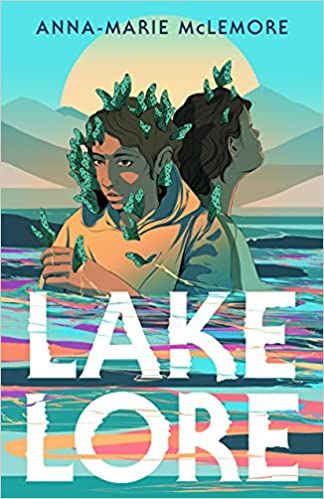
Lakelore by Anna-Marie McLemore
In this young adult novel by award-winning author Anna-Marie McLemore, two non-binary teens are pulled into a magical world under a lake – but can they keep their worlds above water intact?
Everyone who lives near the lake knows the stories about the world underneath it, an ethereal landscape rumored to be half-air, half-water. But Bastián Silvano and Lore Garcia are the only ones who’ve been there. Bastián grew up both above the lake and in the otherworldly space beneath it. Lore’s only seen the world under the lake once, but that one encounter changed their life and their fate.
Then the lines between air and water begin to blur. The world under the lake drifts above the surface. If Bastián and Lore don’t want it bringing their secrets to the surface with it, they have to stop it, and to do that, they have to work together. There’s just one problem: Bastián and Lore haven’t spoken in seven years, and working together means trusting each other with the very things they’re trying to hide.
Reasons to read it: When I tell you I have been waiting for this queer, neurodivergent, Latine magical realism novel for a while! McLemore’s beautiful writing brings Mexican folklore to life in this world where fears manifest as living folk art. This atmospheric novel is a lovely, magical journey to self-acceptance that is bolstered by supportive friends and family.
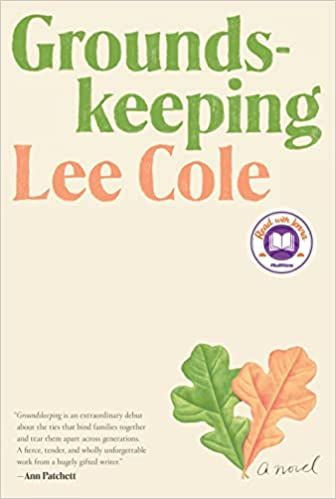
Groundskeeping by Lee Cole
An indelible love story about two very different people navigating the entanglements of class and identity and coming of age in an America coming apart at the seams—this is “an extraordinary debut about the ties that bind families together and tear them apart across generations” (Ann Patchett, best-selling author of The Dutch House).
In the run-up to the 2016 election, Owen Callahan, an aspiring writer, moves back to Kentucky to live with his Trump-supporting uncle and grandfather. Eager to clean up his act after wasting time and potential in his early twenties, he takes a job as a groundskeeper at a small local college, in exchange for which he is permitted to take a writing course.
Here he meets Alma Hazdic, a writer in residence who seems to have everything that Owen lacks—a prestigious position, an Ivy League education, success as a writer. They begin a secret relationship, and as they grow closer, Alma—who comes from a liberal family of Bosnian immigrants—struggles to understand Owen’s fraught relationship with family and home.
Exquisitely written; expertly crafted; dazzling in its precision, restraint, and depth of feeling, Groundskeeping is a novel of haunting power and grace from a prodigiously gifted young writer.
Reasons to read it: In addition to being a love story, this is also about how much family influences romantic relationships, and what happens when you choose something else. The exploration of emotions is nuanced and the differences faced by Owen and Alma as their relationship develops mirror that of many Americans after the 2016 presidential election, as well as the entire country as it contends with its identity, past and present.
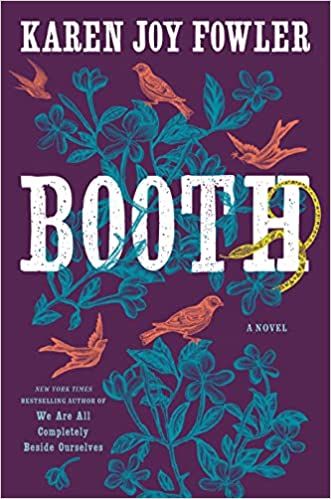
Booth by Karen Joy Fowler
From the Man Booker finalist and bestselling author of We Are All Completely Beside Ourselves comes an epic novel about the family behind one of the most infamous figures in American history: John Wilkes Booth.
In 1822, a secret family moves into a secret cabin some thirty miles northeast of Baltimore, to farm, to hide, and to bear ten children over the course of the next sixteen years. Junius Booth—breadwinner, celebrated Shakespearean actor and master of the house in all ways—is at once a mesmerizing talent and a man of terrifying instability. One by one the children arrive, as year by year, the country draws closer to the boiling point of secession and civil war.
As the children grow and the tenor of the world shifts, the Booths cement their place as one of the country’s leading theatrical families. But behind the curtains of the many stages they have graced, multiple scandals, family triumphs, and disasters begin to take their toll. A startling portrait of a country in the throes of change and a vivid exploration of brother- and sisterhood, Booth is a riveting historical novel focused on the very things that bind, and break, a family.
Reasons to read it: For an immersive account of how John Wilkes Booth came to be. Hint: it’s not really how you’d think. For one, the Booths were vegetarian and against slavery. How, then, did he come to assassinate President Lincoln? Fowler fleshes out the answer, which involves a a family history of mental instability, alcoholism, racism, broken dreams, and scapegoatism. The addition of the stories of the Booth daughters as well as Black characters also serves to paint a picture detailing how this time in America has many parallels to now.
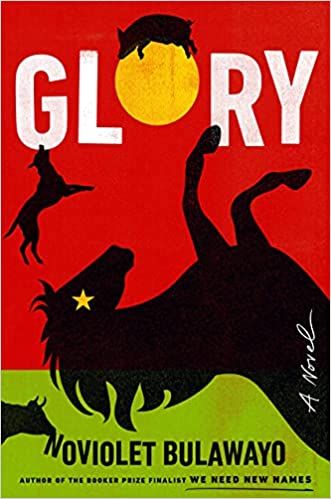
Glory by NoViolet Bulawayo
From the award-winning author of the Booker-prize finalist We Need New Names, a blockbuster of a novel that chronicles the fall of an oppressive regime, and the chaotic, kinetic potential for real liberation that rises in its wake.
Glory centers around the unexpected fall of Old Horse, a long-serving leader of a fictional country, and the drama that follows for a rumbustious nation of animals on the path to true liberation. Inspired by the unexpected fall by coup, in November 2017, of Robert Mugabe, Zimbabwe’s president of nearly four decades, Bulawayo’s bold, vividly imagined novel shows a country imploding, narrated by a chorus of animal voices who unveil the ruthlessness and cold strategy required to uphold the illusion of absolute power, and the imagination and bullet-proof optimism to overthrow it completely.
As with her debut novel We Need New Names, Bulawayo’s fierce voice and lucid imagery immerses us in the daily life of a traumatized nation, revealing the dazzling life force and irrepressible wit that lies barely concealed beneath the surface of seemingly bleak circumstances. At the center of this tumult is Destiny, who has returned to Jidada from exile to bear witness to revolution–and focus on the unofficial history and the potential legacy of the women who have quietly pulled the strings in this country.
The animal kingdom–its connection to our primal responses and resonance in the mythology, folktales, and fairytales that define cultures the world over–unmasks the surreality of contemporary global politics to help us understand our world more clearly, even as Bulwayo plucks us right out of it. Glory is a blockbuster, an exhilarating ride, and crystalizes a turning point in history with the texture and nuance that only the greatest of fiction can.
Reasons to read it: Sometimes to see something clearly, we have to look at it indirectly. This allegory for the workings of corrupt government will be familiar for fans of Orwell’s Animal Farm in this Zimbabwean update to the classic. Bulawayo’s lyrical prose elevates the fable-like quality of the story with its sometimes cartoonish — although not unrealistic — characters.
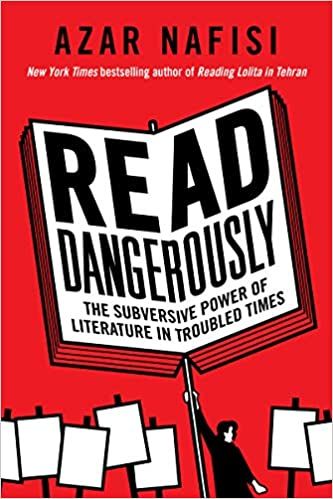
Read Dangerously: The Subversive Power of Literature in Troubled Times by Azar Nafisi
The New York Times bestselling author of Reading Lolita in Tehran returns with a guide to the power of literature in turbulent times, arming readers with a resistance reading list, ranging from James Baldwin to Zora Neale Hurston to Margaret Atwood.
What is the role of literature in an era when one political party wages continual war on writers and the press? What is the connection between political strife in our daily lives, and the way we meet our enemies on the page in fiction? How can literature, through its free exchange, affect politics?
In this galvanizing guide to literature as resistance, Nafisi seeks to answer these questions. Drawing on her experiences as a woman and voracious reader living in the Islamic Republic of Iran, her life as an immigrant in the United States, and her role as literature professor in both countries, she crafts an argument for why, in a genuine democracy, we must engage with the enemy, and how literature can be a vehicle for doing so.
Structured as a series of letters to her father, who taught her as a child about how literature can rescue us in times of trauma, Nafisi explores the most probing questions of our time through the works of Toni Morrison, Salman Rushdie, James Baldwin, Margaret Atwood, and more.
Reasons to read it: This is a reminder of the power of literature through history as the U.S. contends with censorship. Through thoughtful analysis of each writer’s work — from Plato’s to Zora Neale Hurston’s — Nafisi shows the timelessness of literature’s power to challenge, liberate, and cope with oppression. Opposition to individuality and freedom is nothing new, and this collection shows how writers have always fought against it.
Other Book Riot New Releases Resources
- All the Books, our weekly new releases podcast, where Liberty and a cast of co-hosts talk about eight books out that week that we’ve read and loved.
- The New Books Newsletter, where we send you an email of the books out this week that are getting buzz.
- Finally, if you want the real inside scoop on new releases, you have to check out Book Riot Insiders’ New Releases Index! That’s where I find 90% of new releases, and you can filter by trending books, Rioters’ picks, and even LGBTQ new releases!





